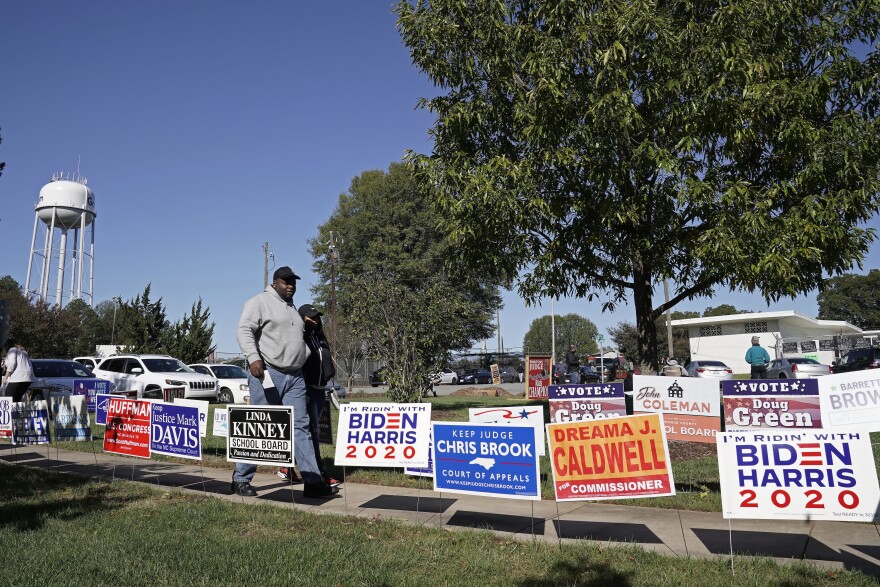North Carolina Republicans are frustrated that national media outlets haven't called the state for President Donald Trump yet in last week's election.
And they're concerned that votes cast on Election Day haven't shown up in voter histories yet. But, there's a good reason for that. It’s not unusual.
Typically, voter histories don't reflect Election Day voting until after the county canvasses, when officials finalize their tallies.
Meanwhile, misinformation about ballot counting is swirling on social media. Some Republicans are accusing the state Elections Board of "playing games" with the data and pressing for faster release of voter histories to prove that votes are being counted.
Every eligible voter who cast a ballot can rest assured it's being counted, even if it takes a few more days for local officials to log the record so it shows up online, according to North Carolina State Board of Elections Director Karen Brinson Bell.
"And remember, some of these county offices are one-person shows," Bell said. "So even though it's a small quantity, it's still one person who's managing all this. Or in many of the counties it's truly just a two-person office."
Bell added that, as in all elections, the information will be released when it's complete.
"It's not an effort to withhold," she said. "It's just simply... not at a place where it would be accurate to release it."
The Associated Press has not declared a winner in North Carolina's presidential contest because, a week after Election Day, the race between President-elect Joe Biden and Trump remains too early to call. On Wednesday, Trump was ahead of Biden by about 73,260 votes.
The presidential race in North Carolina is closer than the Senate race, which AP called for Republican incumbent Sen. Thom Tillis after Democratic challenger Cal Cunningham conceded.
Absentee and provisional votes counted since Election Day have favored Biden, shrinking Trump's lead by a little more than 3,400 votes. As long as ballots were postmarked by Nov. 3, state election officials have until Thursday at 5 p.m. to receive and count them.
The AP will reassess the race once the deadline to return absentee ballots has passed. Across the state, as many as 92,000 mail-in ballots are still outstanding and more than 20,000 provisional ballots have to be considered.
At least one statewide race still hangs in the balance as county elections officials continue processing those thousands of ballots.
Republican Paul Newby's lead over Democrat Cheri Beasley for North Carolina Supreme Court Chief Justice is now under 1,000 votes. It was more than 3,000 after Election Night.
Beasley is the incumbent and first African-American female chief justice. Newby gave up his associate justice post for a run at the top spot. The race will likely go to a recount, with a gap of fewer than 10,000 votes.
A recount would take place before the state certifies final results on Nov. 24, the same day voter history data should be available by.










